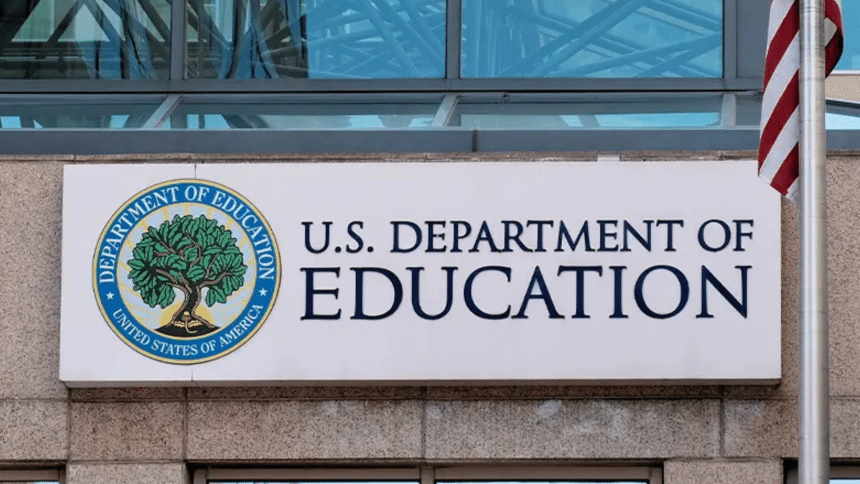While many state leaders, agencies, and employees remain in limbo while Mississippi lawmakers wait to settle a government budget, education leaders were sent into a frenzy when word came down from the federal level that more than $137 million in funding would immediately be frozen.
Newly minted U.S. Secretary of Education Linda McMahon told state education agencies on March 28 that COVID-19 relief funds, which were originally slated to be available through March 31, 2026, would be halted immediately. For Mississippi, that meant $137,221,346 in funding was no longer available, money that the state department of education, districts, and schools had already accounted for.

In McMahon’s announcement, she said, “Extending deadlines for COVID-related grants, which are in fact taxpayer funds, years after the COVID pandemic ended is not consistent with the Department’s priorities and thus not a worthwhile exercise of its discretion.”
A response from the Mississippi Department of Education (MDE), penned by state superintendent of education Dr. Lance Evans, decried the move and urged McMahon to reconsider. Evans cited a litany of programs, projects, and legal obligations that will not be able to be met without the funding and would lead to major consequences across the state.
Evans pointed to a number of essential services and supports that would be decimated without the anticipated funding, including:
- Instructional services specifically designed to address pandemic-related learning gaps;
- Access to high-quality instructional materials and professional development for educators to implement them effectively;
- Ongoing support for students experiencing homelessness, a need that has persisted since the start of the pandemic;
- School nurses and mental health services to address the heightened wellness needs of students, which remain at historic levels since the onset of the pandemic; and
- Essential school facility repairs and improvements that are necessary to ensure a safe and healthy learning environment for all students.
Earlier this week, Lt. Gov. Delbert Hosemann voiced his concerns about the lack of funding. He also said the amount of lost funding could grow as high as $500 million due to the Trump Administration’s sweeping approach to gutting federal spending.
“As my mama used to say, I can hear the train coming down the track,” Hosemann said, noting that the “rainy day” that the state has been saving for could be arriving. “The president has been real clear with us, and we hired him, we’re going have some short-term pain here. And that’s happening.”
As Evans explained in his letter on behalf of MDE, the question is how painful the short term is and whether Mississippi’s education system can survive it. The superintendent also pointed to the progress Mississippi has made in education, fearing a backslide if the financial pillar is ripped away.
“If funding is not restored, Mississippi school districts will be forced to default on payments to contractors and vendors that are currently under contract, which will result in litigation that will put additional burden on school districts,” a release from MDE reads. “The progress we have made toward education recovery is significant but remains incomplete. Maintaining funding continuity is essential to solidify our students’ academic gains and wellbeing.”
McMahon did leave the possibility open that the department could consider continuing funds, though on a project-by-project basis. MDE requested that the full funding be reinstated immediately and be held until it’s initially established expiration date in 2026.
Hosemann also emphasized that the Department of Government Efficiency, commonly referred to as DOGE, has not yet touched Child Protective Services, Health and Human Services, or other major agencies that the state relies on for funding, meaning the well could become even drier.
Mississippi is the fourth most federally dependent state in the union, drawing an estimated $14 billion from the federal government during Fiscal Year 2024.
But the decimation of federal funding doesn’t only affect state agencies, with non-government entities like the Mississippi Humanities Council announcing Thursday that its federal funding – just $1 million – had been slashed. Leaders with the council pleaded with Mississippians to contact their representatives in Washington D.C. to work toward having the decision reversed.
“Remind them that in 2024, with just $1 million in federal funding, the Council presented 750 programs across 90 communities and supported 65 grants to various institutions, including colleges, historical societies, museums, and community organizations,” a statement from the Mississippi Humanities Council says. “These initiatives include traveling Smithsonion exhibits, our Speakers Bureau, the Mississippi Freedom Trail, youth reading programs, and transformative prison education courses and book clubs.”
Another letter sent out Thursday by the White House threatened to fully strip federal funding from public schools in states that neglect to do away with DEI initiatives, indicating the possibility of the administration backing down from its strip-and-slash approach is not likely.







